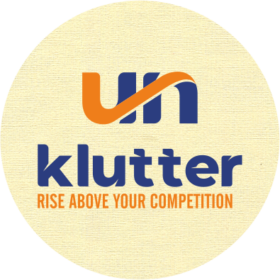Writing a Simple Resume
Let’s face it—job hunting can be a little like fishing. You’re casting out your resume, hoping to hook a recruiter’s attention. But without the right bait—read: a clear and simple resume—you might just end up with crickets. The goal? Get noticed, and more importantly, get those interview calls!
Why a Clean, Simple Resume Works
Imagine you’re a recruiter sifting through hundreds of resumes. What’s going to stand out? A flashy, over complicated design? Or a clean resume design that’s neat, easy to read, and packed with relevant details? The latter, always. Recruiters want to spot your work experience, skills, and achievements quickly—think of it like speed dating, but for your career.
Simplicity doesn’t mean boring. In fact, a well-laid-out, easy-to-navigate resume can speak volumes about your professionalism. It’s like walking into a spotless room—everything is in its place, and it immediately puts you in a good light. This effective resume approach makes it easier for hiring managers to connect the dots between your experience and their needs.
The Art of Tailoring Your Resume
Think of your resume like a good pair of jeans—it needs to fit just right. A tailored resume for each job you apply to is crucial. No, you don’t need to rewrite your entire life story, but tweaking the details here and there? Absolutely. If you’re applying for a project manager role, highlight your organizational skills and leadership experience. If you’re going for a data analyst job, focus on your problem-solving abilities and relevant certifications.
It’s all about showing the recruiter that you’ve read the job description and you’re not just sending out resumes like confetti at a parade. You’re serious, and your resume should reflect that.
Make Your Skills Pop
Let’s talk about the star of your resume—your skills section. This is your moment to shine! And while your work experience is important, the skills section can often make or break your application. Why? Because recruiters are looking for specific keywords that match the job description, especially if they’re using an ATS-friendly resume system. If your resume reads like a perfect match to the action verbs for resume they’re seeking, you’re already halfway there.
Don’t bury your talents in paragraphs. Bullet points are your best friend here. Highlight your most relevant skills in a clean, straightforward format. Action verbs add energy and clarity to your experience, ensuring your resume doesn’t read like a laundry list of responsibilities.
Show, Don’t Tell
You’ve heard this before, right? It’s one thing to say, “I improved sales,” and quite another to say, “Increased sales by 25% in Q1 2023.” Numbers, percentages, and quantifiable achievements make your experience more tangible. This is where you show recruiters you’re not just all talk—you deliver results.
So whether it’s “boosted customer retention by 30%,” “completed 15 major projects within deadline,” or “managed a $1 million budget with zero discrepancies,” make sure your resume is packed with concrete examples of your accomplishments.
Keep It Easy on the Eyes
Your resume’s format is like the wrapping on a present—it sets the tone. You don’t want flashy designs or a rainbow of colors unless you’re in a creative field where it’s encouraged. Keep it professional and ATS-friendly, using one or two simple fonts throughout. Remember: less is more. White space is your friend, making your resume easier to skim and more likely to grab recruiter attention.
And while we’re on formatting—your resume should be concise. Ideally, one page if possible, but definitely no more than two. Resume examples that work usually show a concise resume format with only the essentials—work experience, skills, education, and certifications and awards. Hiring managers don’t have time to sift through an autobiography. They need a snapshot of your career growth and relevant accomplishments.
Proofread, Proofread, Proofread
If there’s one thing that can sink an otherwise stellar resume, it’s typos. Nothing screams “I didn’t care enough” like spelling errors or incorrect dates. Don’t let a small mistake ruin your shot at landing the job. Read it over, have a friend or family member proofread it, and make sure every comma is in place. It’s like showing up to an interview in a wrinkled suit—nobody’s going to notice your professional summary if they’re distracted by the details.
Don’t Forget About Your Online Presence
A solid resume is crucial, but your online professional presence is just as important. Most recruiters will look you up on LinkedIn after scanning your resume, so make sure your profile is up-to-date, mirrors the details on your resume, and presents you in the best light. Think of your LinkedIn as the companion to your resume—a place where recruiters can dive deeper into your career growth.
The Cherry on Top: Relevant Extras
Certifications and awards? Volunteer work? Absolutely include them, but only if they’re relevant to the role. If you’ve got a PMP certification for a project management position, mention it proudly. But that award you won for baking the best pie in the county fair? Maybe leave that off unless, of course, you’re applying for a culinary position.
Resume best practices suggest including certifications, education, and even volunteer work if they demonstrate valuable experience or skills related to the job you’re applying for.
The Power of a Standout Resume
When your resume is clear, concise, and tailored, it’s like walking into the interview room with a firm handshake and a confident smile. You’ve already made a great first impression on paper, and now it’s time to back it up in person. Job application success starts with a standout resume—one that grabs attention, highlights your achievements, and makes recruiters want to know more.
Ready to transform your resume and land your dream job?
Don’t wait! Get expert help today. Reach out via WhatsApp or email, and let’s create a professional resume that opens doors to your next career opportunity!




